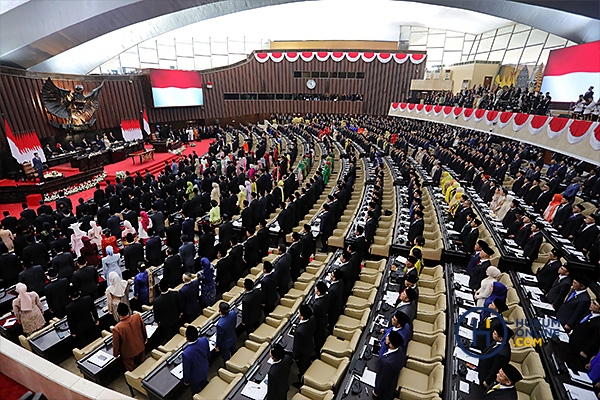Inauguration Day: Call for Stronger Legislative Action on Human Rights Issues
JAKARTA, RAKYAT NEWS— In response to the inauguration of the new members of the Indonesian House of Representatives (DPR) or law makers for the 2024-2029 term, Usman Hamid, Executive Director of Amnesty International Indonesia, emphasized the need for the legislature to critically review executive policies that compromise human rights.
Today, 580 members of the Indonesian House of Representatives (DPR) or law makers were officially inaugurated. The inaugural session was led by the interim speaker of the DPR. Additionally, 152 members of the Regional Representative Council (DPD) were also sworn in. The ceremony was attended by President Joko Widodo and President-elect Prabowo Subianto, who is set to be inaugurated on October 20, 2024.
“As hundreds of DPR members take their oath today, we remember the second anniversary of the Kanjuruhan tragedy. This event serves as a stark reminder of unresolved human rights violations, many of which stem from executive policies,” Hamid stated.
He criticized the previous legislature for its inadequate oversight, highlighting ongoing issues such as state violence and a lack of accountability for past human rights abuses. He noted that the recent passage of development policies without public consultation reflects a troubling decline in human rights protections, attributed in part to the DPR’s weakened control.
He also pointed out that laws such as the ITE Law and the revised Criminal Code continue to restrict freedom of expression. He expressed concerns about the Omnibus Law, which he argued negatively impacts workers’ rights and environmental protections.
Furthermore, he highlighted unresolved legislative matters from the previous term, including revisions to broadcasting, military, and police laws that pose risks to human rights.
He condemned the recent decision by the People’s Consultative Assembly (MPR) to remove former President Suharto’s name from a 1998 decree aimed at combating corruption, collusion, and nepotism, characterizing it as an affront to victims of human rights violations during his 32-year rule. He pointed out that today marks the anniversary of the October 1 Movement, a tragic historical event marked by mass killings.
“The new DPR must take responsibility for addressing past human rights violations as mandated by Law No. 26 of 2000 on Human Rights Courts. They must urge the President to establish ad hoc human rights courts for cases such as the Trisakti and Semanggi tragedies, the 1998 riots, and various incidents from Aceh to Papua,” Hamid asserted.
He also called for the DPR to ensure justice for victims of human rights abuses linked to national strategic projects affecting indigenous communities in areas like Rempang, Wadas, and Mandalika.
“Accountability and transparency in decision-making processes are crucial. Our research on the procurement of surveillance equipment by the police and the National Cyber and Crypto Agency revealed a lack of transparency, highlighting the need for DPR oversight,” he added.
He reiterated that the DPR must hold security agencies accountable and advocate for serious reforms to ensure equitable legal protections for all citizens. (Uki Ruknuddin)


Tinggalkan Balasan Batalkan balasan